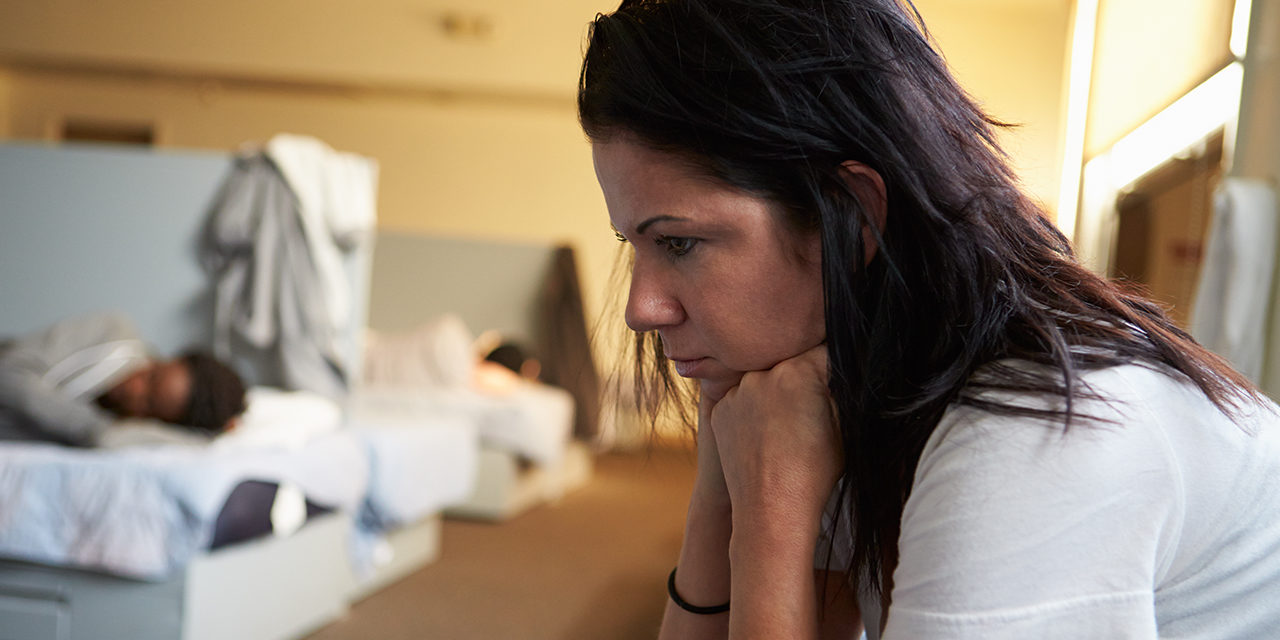The U.S. Department of Housing and Urban Development (HUD) has announced it is withdrawing the previous administration’s proposed rule that would have allowed faith-based homeless shelters to use the biological definition of “male” and “female” in determining who can be housed in sex-segregated facilities.
The proposed move by HUD would require shelters to house transgender women (men who believe they are women) with biological women, thus endangering the safety of the women in those shelters, many of whom have suffered from sexual assault in the past.
“Access to safe, stable housing – and shelter – is a basic necessity,” said HUD Secretary and Biden appointee Marcia L. Fudge in announcing HUD’s latest move. “Unfortunately, transgender and gender non-conforming people report more instances of housing instability and homelessness than cis-gender people. Today, we are taking a critical step in affirming HUD’s commitment that no person be denied access to housing or other critical services because of their gender identity. HUD is open for business for all.”
But what about the safety of women? The risks to them in these types of settings have been well-documented.
Housing is regulated by federal law, including the Fair Housing Act of 1968, which prohibits discrimination on the basis of sex. In 2016, the Obama-era HUD modified what is called “The Equal Access rule” by redefining sex discrimination to include discrimination based on gender identity, putting the shelters in the untenable position of having to house biological men (transgender women) with biological women.
Responding to that problem in 2020, the Trump-era HUD proposed a rule that would allow faith-based shelters to craft admissions policies in keeping with their religious mission, which would allow such shelters to define sex based on biology. That proposed rule is the one being abandoned by the current administration.
The issue of religious freedom and gender identity in the provision of housing for the homeless has come up before. Fighting a similar rule a few years ago in the form of a city ordinance, Alliance Defending Freedom (ADF) attorneys represented Downtown Hope Center in a federal lawsuit, The Downtown Soup Kitchen dba Downtown Hope Center v. Municipality of Anchorage, after the city of Anchorage misapplied a city ordinance against the faith-based women’s shelter. In 2019, a federal court issued an injunction that allowed the homeless shelter to protect women by defining sex in keeping with its biblical understanding of “male” and “female.”
ADF issued a statement in response to HUD’s latest attempt to force faith-based shelters to compromise their beliefs and put women at risk.
“The U.S. Department of Housing and Urban Development under the Biden administration has abandoned women and girls under the guise of being ‘inclusive,’” ADF Senior Counsel Kate Anderson said. “But it’s not ‘inclusive’ to force shelters to violate their faith or impose a blanket federal policy that forces vulnerable women to share space with men who claim a female identity. Our Constitution requires government officials to treat religious Americans and faith-based organizations as favorably as everyone else, and HUD’s previous, proposed rule took an important step in that direction. Some of the faith-based organizations we’ve represented in court have faced hostility—and even the threat of closure—by government officials who disagree with their religious beliefs. Unfortunately, HUD’s policy reversal promises to multiply those threats and pit the federal government against the shelters and ministries—across the nation—that are effectively and compassionately meeting the needs of our nation’s most vulnerable populations.”
Forcing a government-endorsed transgender ideology on faith-based institutions violates the First Amendment’s guarantee of the free exercise of religion and puts women at imminent and foreseeable personal risk. Pray for the safety of the women in these shelters as well as for any potential legal protection the courts can provide in future cases that may arise because of HUD’s latest action.
Photo from Shutterstock






